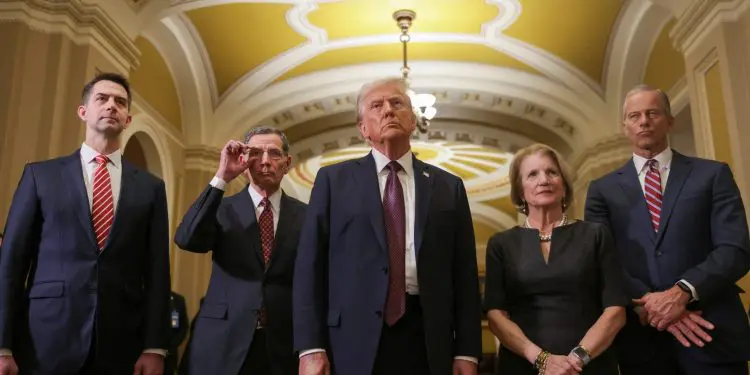Donald Trump’s unparalleled journey to reclaim the White House will hit an extraordinary milestone on Friday, just ten days before his inauguration for a second term as President. The U.S. Supreme Court, in a razor-thin 5-4 decision, rejected his last-ditch attempt to delay sentencing in his New York hush money case. This decision sets the stage for a historic moment: Trump will become the first president to assume office with a criminal conviction on his official record.
While Judge Juan Merchan has already stated he won’t impose a jail sentence, the optics are staggering. The soon-to-be commander-in-chief will appear as a defendant in a criminal proceeding, virtually attending from his Florida residence.
A Presidency Overshadowed by Conviction
The juxtaposition of Trump’s conviction with his imminent inauguration creates yet another chapter of unprecedented events in American politics. After surviving four criminal indictments during his campaign, Trump’s conviction on 34 counts of falsifying business records—stemming from hush money payments to Stormy Daniels in 2016—will become an indelible part of his presidential legacy. The former president pleaded not guilty and denies the alleged affair.
Trump, unsurprisingly, lashed out at the judiciary following the Supreme Court’s ruling. “This is a disgrace. We’re appealing anyway,” he told reporters at Mar-a-Lago. His tirade against Judge Merchan, whom he accused of trying to “embarrass” him, only amplified his grievances. “I’m the president-elect of the United States of America, and they’re playing political games,” Trump fumed.
Supreme Court Splits—Two Conservatives Join Liberals
The Supreme Court’s denial marked a rare defeat for Trump’s legal strategy of leveraging endless appeals to delay accountability. Chief Justice John Roberts and Justice Amy Coney Barrett, a Trump appointee, joined the court’s liberal justices in rejecting the delay, emphasizing that Trump’s complaints about evidentiary violations and alleged burdens on his responsibilities as president-elect did not justify a stay.
Roberts, who is expected to preside over Trump’s swearing-in on January 20, now faces the extraordinary task of inaugurating a president under the shadow of a criminal conviction. Meanwhile, four conservative justices, including Samuel Alito, dissented, signaling deep divisions within the court over Trump’s legal entanglements.
A Legal Gauntlet with Few Victories
The New York hush money case, brought by Manhattan District Attorney Alvin Bragg, may have been regarded as the weakest of the four criminal cases Trump faced during the campaign, but it was the first to reach a conclusion. Other cases have either stalled or crumbled:
- Federal Election Interference Case: Dismissed by Judge Tanya Chutkan after special counsel Jack Smith concluded a sitting president cannot be prosecuted, following DOJ guidance.
- Classified Documents Case: Thrown out by Trump-appointed Judge Aileen Cannon, who ruled Smith’s appointment as special counsel unconstitutional.
- Georgia Election Interference Case: Now in limbo after an appeals court disqualified Fulton County DA Fani Willis due to alleged impropriety linked to a past romantic relationship with a colleague on the case.
Political and Legal Fallout
The Supreme Court’s ruling underscores the fine line the judiciary walks in balancing Trump’s legal challenges and his unprecedented return to power. Critics have long feared that Trump’s reconfigured court might show undue deference to him in a second term fraught with constitutional tests. However, Thursday’s decision suggests that Trump may not enjoy carte blanche judicial support.
Adding to the intrigue, two of the lawyers who filed Trump’s Supreme Court appeal—Todd Blanche and D. John Sauer—have been tapped for high-ranking positions in his incoming administration.
Meanwhile, Trump’s legal troubles continue to mount. A federal appeals court on Thursday cleared the way for the Justice Department to release special counsel Smith’s final investigative report. Trump is expected to appeal this ruling to the Supreme Court as well, setting the stage for more high-stakes legal battles.
A Presidency Defined by Conflict
Trump’s return to the White House promises to be as contentious as his first term, with his legal woes and combative rhetoric poised to dominate headlines. His criminal conviction will further polarize a nation already divided, fueling both his base’s loyalty and his critics’ outrage.
As Trump prepares to navigate this unprecedented chapter in American history, one thing is clear: the road ahead will be as turbulent as the path that brought him here.







